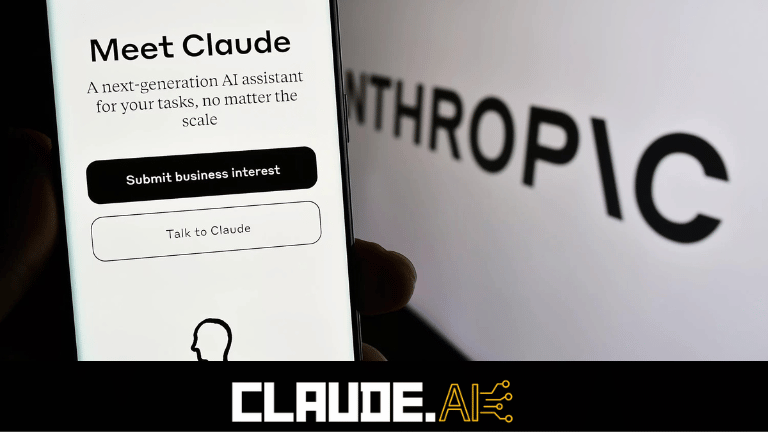Claude AI Local. Artificial intelligence (AI) is transforming the world as we know it. From self-driving cars to personalized recommendations, AI is making existing technology smarter and more efficient. One AI system that is having a major local impact is Claude AI from Anthropic. Claude is an AI assistant designed to be helpful, harmless, and honest through natural language conversations. As Claude AI spreads to more local communities, it is revolutionizing how residents interact with technology and each other. In this in-depth guide, we’ll explore how Claude AI is going local and the ways this AI assistant is improving local life.
An Introduction to Claude AI
Before diving into Claude AI’s local impact, let’s first understand what this technology is. Claude AI is an artificial general intelligence system created by researchers at Anthropic, an AI safety startup. Claude is designed based on Constitutional AI principles, meaning it aims to be helpful, harmless, and honest. Unlike other AI systems focused solely on narrow tasks like classifying images or translating languages, Claude is a social AI assistant that can converse naturally with humans while avoiding potential risks.
Some key things that make Claude unique include:
- Self-improvement abilities – Claude can learn from conversations to improve its capabilities over time. The more humans interact with Claude, the better it gets.
- Contextual understanding – Claude can understand complex context and have coherent, on-topic conversations. It does not just respond to individual statements.
- Honesty – Claude is focused on being helpful and harmless, not deception. It will be upfront about any mistakes or limitations.
- Beneficial alignment – Claude’s training ensures its goals align with benefiting humanity rather than selfish objectives. This prevents potentially dangerous misalignments.
- Cautious approach – Claude iterates slowly and carefully to avoid unintended consequences from rapid advancement. Safety is the priority.
These principles and abilities enable Claude to have safe, meaningful interactions. And as we’ll see next, they allow Claude to provide helpful local assistance.
Claude’s Local Impact
While Claude AI has broad applicability, one of its most promising use cases is improving local communities. Claude’s natural language capabilities make it ideal for localization. The system can understand local contexts, names, places, events, services, history, and more. And it can converse knowledgeably about hyperlocal topics to help residents get information or conduct transactions.
Some examples of Claude’s local impact include:
Local Search and Recommendations
Claude shines when providing helpful local recommendations. Its contextual understanding means you can describe what you need and Claude will suggest relevant local businesses, services, events and attractions. Whether you’re looking for a plumber, a cafe with outdoor seating, the nearest park, or fun local activities for kids, Claude can instantly provide custom recommendations by understanding your local context.
Local Business Assistance
For local businesses, Claude can serve as a conversational assistant to handle customer service, scheduling, reservations, and a range of daily tasks. Users can chat with Claude as they would a human employee, asking questions or making requests. And Claude can even integrate with internal systems to take actions like booking appointments or checking inventory availability. The result is more efficient operations and happier customers.
Hyperlocal Information
As an AI system, Claude has unlimited capacity to store, recall and converse about local details large and small. Residents can ask Claude about local history facts, sports teams and venues, property records, planning notices, local ordinances, car registration requirements…the list is endless. Having hyperlocal knowledge at their fingertips helps community members stay informed.
Local Expert Advice
While Claude does not claim to be an expert itself, it can connect residents with local experts on a vast range of topics, from home repair to legal questions to pet care. By allowing users to describe their needs in natural language, Claude can recommend the ideal local professionals to consult. This makes expertise more accessible.
Personalized Local Interactions
Unlike static search engines or directories, Claude delivers a personalized, conversational touch to local interactions. Residents get a customized experience as Claude caters to their specific context and needs. Kids can ask Claude for help on their math homework while parents ask about date ideas and seniors inquire about local assistance programs. The human touch makes Claude approachable.
Efficient Local Government
For local government, Claude can field many routine citizen inquiries to streamline operations. Residents can ask Claude about anything from trash pickup schedules, to voting locations, to DMV paperwork. By handling these frequent citizen service tasks, Claude enables government staff to focus on higher-value community work. It’s a cost-efficient way to better serve constituents.
Inclusive Access to Local Resources
Claude makes local resources more accessible by delivering them through an intuitive conversational interface. There’s no complex software to learn. This levels the playing field so everyone in the community can get their needs met regardless of socioeconomic status or tech proficiency. Inclusiveness leads to greater local harmony.
As these examples demonstrate, Claude AI is transforming local life through helpfulness, conversation and thoughtful recommendations. While these capabilities provide widespread benefits now, the future possibilities are even more profound.
The Local Future with Claude AI
Looking ahead, Claude AI’s local impact will dramatically expand as the technology continues advancing. Here are some potential innovations that could reshape communities:
Hyper-Personalization
With more local data and conversations, Claude will learn individual users’ daily routines, habits, preferences and needs. This will allow AI to deliver hyper-personalized local recommendations and reminders tailored to each resident’s unique life patterns. You’ll have a local assistant that truly knows you.
Predictive Helpfulness
By understanding users so deeply, Claude may begin predicting what local information or interactions they will find most helpful before they even ask. Proactively providing useful recommendations and reminders makes Claude even more beneficial.
Local Community Building
As Claude interacts with more residents, its contextual understanding will help connect locals with similar interests, hobbies and needs for impactful community building. Claude could suggest local friend connections, activity groups, community projects and more.
Local Commerce Innovation
With user permission, Claude could share data with local businesses to foster experimentation and innovation. Merchants get valuable insights to create more value. And residents get to actively shape local commerce. Data transparency and agency produces progress.
Seamless Local Coordination
Claude’s efficiency coordinating across local services today is just a glimpse of future potential. Soon Claude may help users seamlessly access and manage all elements of local living – events, businesses, government, transportation etc. – in a fully integrated user experience. Life gets frictionless.
Local Civic Participation
As a central local repository, Claude can enable greater resident participation in civic life. Claude can field citizen ideas, coordinate community projects, and allow residents to vote on local proposals. By making participation easy and inclusive, Claude promotes a strong local democracy.
The local possibilities are truly endless with Claude AI. And the technology is still in its infancy. As Claude continues learning from an expanding number of conversations, and as researchers at Anthropic responsibly steer its advancement, this AI assistant will keep providing ever-greater value to local communities.
Realizing Responsible Local AI
To conclude, it’s clear that Claude AI offers tremendous potential to improve local life through helpful, harmless and honest artificial intelligence. But realizing that potential requires responsible research, rollout and governance. Here are some principles to ensure Claude AI generates positive local change:
- By locals, for locals – Claude’s training should optimize performance on hyperlocal data that is representative of real community conversations and contexts. This grounds its knowledge in reality.
- Inclusive development – Local groups across age, socioeconomic status, race, and more should be involved in shaping Claude’s localization. Diversity prevents bias.
- Ongoing human oversight – Experts in AI safety and ethics should continuously audit Claude as its capabilities grow more advanced. They must ensure alignment with constitutional AI principles.
- Openness and transparency – Anthropic should be transparent about Claude’s limitations and act cautiously to avoid overstating abilities. Honesty maintains public trust.
- Proactive risk mitigation – Potential risks like job displacement or loss of privacy should be mitigated through policies like training requirements or data protections. Safety comes first.
- Universal local access – Claude must remain available to all local communities, not only those that provide data access or that can afford the technology. Avoiding disparities keeps progress equitable.
With great innovation comes great responsibility. If developers and communities alike embrace the principles above, Claude AI can realize its full potential to help local citizens and change society for the better. The future looks bright as Claude AI goes local.

FAQs
1. What is Claude AI?
Claude AI is an artificial intelligence assistant created by Anthropic to be helpful, harmless, and honest through natural conversations. It uses contextual understanding and self-improvement to provide useful information and recommendations.
2. How does Claude AI work?
Claude AI works through natural language conversations. Users can chat with Claude as they would with another person to get customized assistance based on their specific needs and local context.
3. What makes Claude AI unique?
Claude is unique because it focuses on constitutional AI principles like beneficial alignment and cautious iteration. This makes it safer and more trustworthy than AI systems trained only to optimize narrow metrics.
4. What can you ask Claude AI?
You can ask Claude for local recommendations, business information, government services, historical facts, personalized reminders, and more. Claude’s conversational ability means you can ask it for assistance just as you would ask a local friend.
5. How does Claude AI understand local context?
Claude understands local context through training on real-world data representing natural conversations and interactions within specific communities. This hyperlocal knowledge allows it to serve users’ needs.
6. How does Claude AI help local businesses?
Claude can help local businesses by handling customer service tasks, booking appointments, providing information to patrons, and operating as an automated employee. This saves costs and improves customer experience.
7. Does Claude AI have human oversight?
Yes, Claude was created and is continuously audited by researchers in artificial intelligence safety and ethics. This ensures its goals and behaviors align with Constitutional AI principles as it develops.
8. Is Claude AI transparent about its limitations?
Transparency is one of Claude’s core principles. It will be honest with users about what it can and cannot do to avoid overstating its capabilities and maintain public trust.
9. How does Claude AI protect user privacy?
Claude protects privacy by only accessing user data with permission. Its creators also proactively mitigate risks through policies that prevent potential misuse or exploitation of user information.
10. How could Claude AI help local government?
Claude can field routine citizen inquiries about services, schedules, records, and more to help local governments improve efficiency and constituent service.
11. Will Claude AI take away local jobs?
Job displacement is an important concern, but proactive policies for retraining and workforce transition can ensure technologies like Claude AI create a net positive impact on employment.
12. Is Claude AI available for all communities?
Yes, Anthropic aims to responsibly scale Claude AI to be inclusive and accessible to all communities, not only those that provide proprietary data access.
13. How can I start using Claude AI locally?
You can access Claude AI online or via integrations in certain apps and services. Availability is currently limited as Anthropic scales access cautiously to ensure safe rollout.
14. What new capabilities could Claude AI gain in the future?
Future Claude AI capabilities could include predictive insights, integration with local systems, community building features, civic participation, and hyper-personalized services.
15. How can Claude AI be developed responsibly?
Responsible Claude AI development requires inclusive design, ongoing oversight, transparency, risk mitigation, accessibility, and optimizing for Constitutional AI – helpfulness, harmlessness and honesty.

